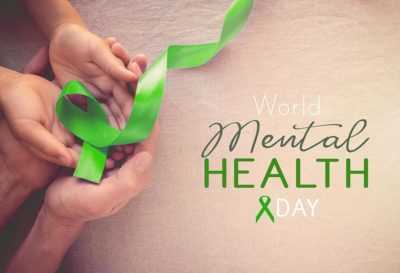In order to highlight integrity, raise awareness and make mental health a global priority, WHO recognizes mental health day on 10 October every year.
Do you know what mental health is?
Mental health includes emotional, psychological, and social well-being. Compromised mental health includes clinically significant disruption in how a person thinks, feels, and reacts. The human mind is the nucleus of the body hence mental health is as important as physical health. Know the fact that there is still hope even when your brain tells you there isn’t.
Mental health can be affected at any age throughout life, following:
- Biological factors- Altered gene chemistry
- Stressful life event- loss of any loved one, accident, etc.
- Family history (hereditary)
Types of Mental disorders
As per the data from the World Health Organisation, in 2019, 1 in every 8 people, or 970 million people around the world are living with a mental disorder. People of any age group, including adolescents can develop the disease at any point in their lives.
The major disorders include:
- Anxiety disorders
- Depression
- Bipolar disorders
- Schizophrenia
- Eating disorders(Anorexia nervosa, Bulimia nervosa)
- Sleep disorders
- PTSD(Post-traumatic stress disorder)
Don’t panic! Look for the Symptoms
Mental health is not a stigma to talk about and it should be diagnosed at the earliest stage like any other disease. Approximately half of all lifetime mental disorders in most studies start by the mid‐teens and three‐fourths by the mid‐20s. Later onsets are mostly due to secondary conditions.
Don’t ignore the warning signs, including but not limited to:
- Loss of interest in everyday tasks persisting for more than 7 days
- Feeling helpless
- Low energy
- Unexplained body pains
- Mood swings
- Eating too much or nothing all-day
- Disruptive sleep patterns
- Becoming anti-social
- Anger issues
- Trouble memorizing things
- Suicidal thoughts
Statistics pertaining to mental health disorders
Mental health is deteriorating among people globally for a number of reasons. This is considered a stigma topic and sufferers become hesitant to discuss and seek help. The fear of public reaction towards the disease makes the condition even worse. According to the statistics available from the National Institute of Mental Health Disorders, part of the National Institutes of Health:
Approximately, an estimated 26% of Americans ages 18 and older — about 1 in 4 adults — suffer from a diagnosable mental disorder in a year. 10.7% of people globally suffer from mental disorders, anxiety being the major with a 3.8% share.
Get help immediately!
Yes! Your mental health will get better because the wound is the place where the light enters. Even the darkest tunnel has a ray of light at the end of it. The old school of thought must be replaced with a more empathetic approach toward the sufferer. There is no shame in sharing your mental issues with your loved ones or seeking professional help. Keeping in mind this global priority, WHO has developed an action plan as well.
Mental health can be cured without medication by observing some initial steps like seeking professional therapy from a psychologist, exercising regularly, sleep aids, maintaining a healthy lifestyle, and staying positive. If further needed, you can contact a psychiatrist for help.
Raise mental health awareness
Look around you, someone might be suffering in silence. Educate the masses that mental therapies are equally important and the sufferer is no less than others. The understanding should be increased about the topic as it’s not taboo to be mentally sick and the hospitals must be sufficiently equipped to heal mental patients.
Wear a Green Ribbon this October to show solidarity with your loved ones.

